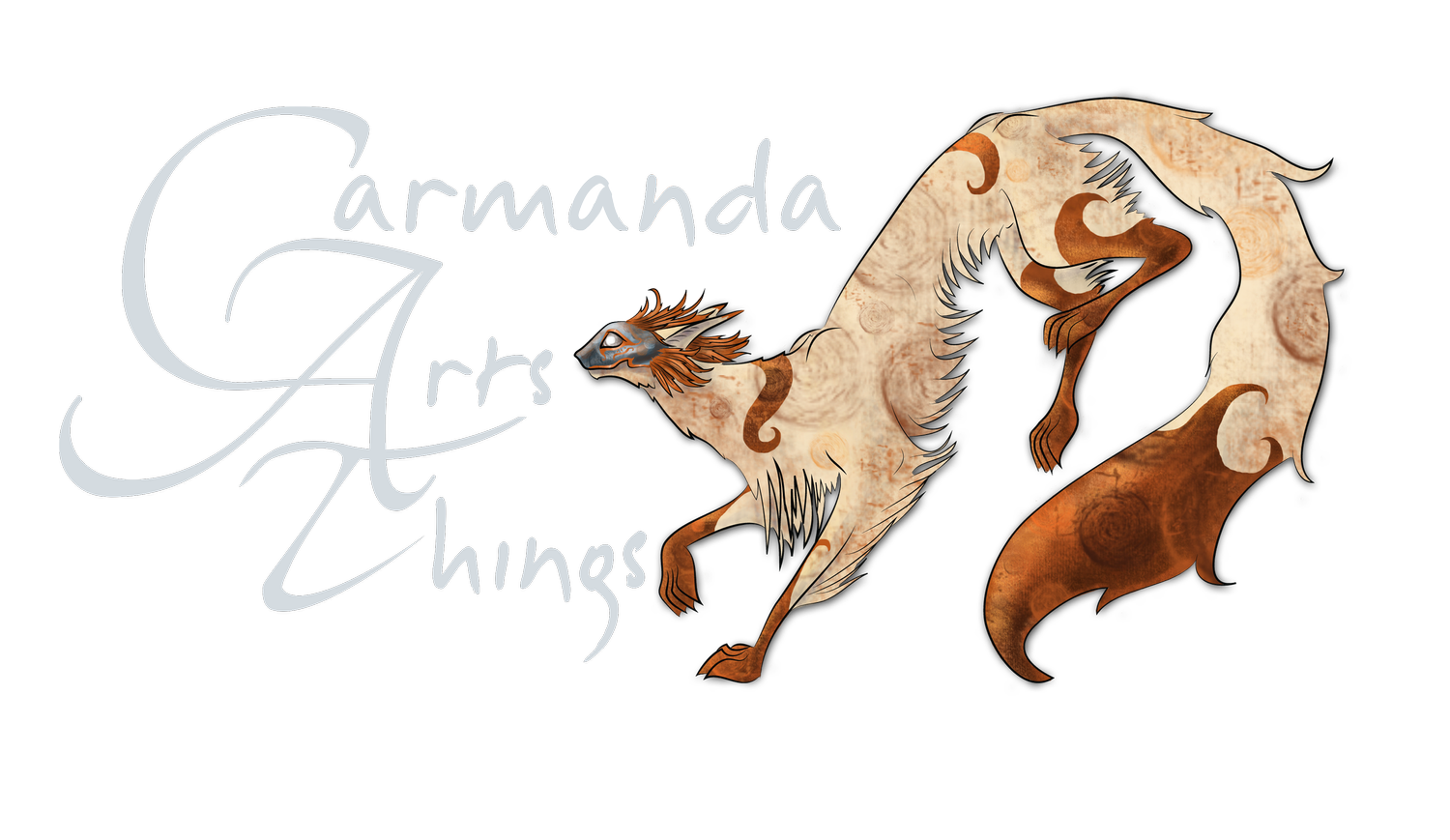A Helpful Strategy for Keeping Your Creative Work on Schedule
One of the biggest challenges faced by the creative worker is scheduling. When you work a day job, you have to figure out how to schedule your creative work around it without losing your mind and burning out. If you're a self-employed creative (or between day jobs), the challenge seems almost greater. There are all of these ideas! And also all of this time! Where to start? Which one should be a priority? It feels like there's time enough for all of them, so either you try to start too many things or you procrastinate until there's not time enough for any. With no boss breathing down your neck and deadlines only really "counting" for commissioned and freelance work, you have to rely on self-management. Unfortunately, the "self" part of most creatives I know (including my own self) is preoccupied with a weird slurry of ideas and anxieties and not particularly interested in being its own boss.Unfortunately, ideas and anxiety don't a salary make, so you need a boss hanging out in that slurry too. And when piling on the guilt doesn't work to motivate you, it's time to make a system to do it for you! Systems take time to set up, tweak, and turn into habit, but once you have them working for you, the work-stuff will be just as much a part of your day as brushing your teeth. You won't even have to think about it, so your brain can be otherwise occupied with idea-anxiety slurry recipes while still getting things done. Finding one that suits your working style is likely to involve some trial and error before it evolves into the system you need, but if you don't give up you'll soon see how it can help change (or at least organize) your creative life. I'm going to share my strategy to give you some ideas for your own.
Systems take time to set up, tweak, and turn into habit, but once you have them working for you, the work-stuff will be just as much a part of your day as brushing your teeth. You won't even have to think about it, so your brain can be otherwise occupied with idea-anxiety slurry recipes while still getting things done. Finding one that suits your working style is likely to involve some trial and error before it evolves into the system you need, but if you don't give up you'll soon see how it can help change (or at least organize) your creative life. I'm going to share my strategy to give you some ideas for your own.
Habitica
I used to write to-do lists and idea lists pretty constantly, until I was drowning in post-its and paper scraps scrawled with incomprehensible gibberish like "fire dreadlocks" and "use all the jewelry supplies." This was less than helpful. Then I found Habitica.Habitica combines my love of lists with my love of living in a fantasy world and defeating arbitrary challenges, and it added a lot of smart features to help make my lists a little more useful and motivating. You get a little character who deals damage by completing tasks, shown on a dashboard divided into four sections: "Habits," "Dailies," "To-Dos," and "Rewards."The site itself explains how each of these function, but for the purposes of a creative career, "Dailies" and "To Dos" are where I put most of my focus. Dailies are the perfect spot to make a creative work schedule and force yourself to stick to it. I have dailies set for doing art, writing, business activities, and work for my podcast, for example. "To Dos" can get a little more specific, keeping track of appointments, tasks (like reporting sales tax if you're an independent retailer), or goals (finish that chapter of your book).Habitica has its limitations, though, mostly in that you're ultimately the one responsible for setting your schedule and you get to decide when a task counts as "done." Between overwhelming myself with an unreasonable number of daily tasks and having trouble measuring my actual progress, I needed to use another technique in conjunction with Habitica. That's when I turned to...
The Pomodoro Technique
I know, I know. Approximately a bajillion articles on organizing your time sing the praises of the Pomodoro Technique, like it's some kind of quietly ticking bandage for your time and focus. I was not able to get this technique to work for me on its own; turns out, I'm just not the sort of person who can pick a task individually and then set a timer for it.I needed a list. And I had one, on Habitica.Using these two tools in conjunction has helped me get organized beyond anything I've ever tried before. While I'm stuck in the completely open realm between day jobs, I can give myself a workable, timed daily schedule of tasks that need to be accomplished. I don't need to sit at a desk and work from 9-5, but I do need to complete 8 pomodoros of art, 6 pomodoros of writing, and 2 pomodoros of business administration for a full 8-hour work day. It doesn't matter at what time or in what order these tasks are completed, so long as they are done and checked off my Dailies list by bedtime.The Pomodoro Technique solved for me one of the biggest challenges I faced with HabitRPG: When does a daily task count as done? Do I have to finish a piece? Does adding a few brush strokes when I'm not feeling it count as accomplishing "art" for the day? Without the uncertainty, I know what I have to do when I get up each morning, and it's harder for my brain to convince me that ten minutes of work is enough.There are many options for habit-tracking sites (most have fewer dragons, though), just as there are variations on the Pomodoro Technique. It doesn't really matter what you use to keep track of your daily tasks, so long as it meets the following 3 standards:
- It can be clearly measured (I have to work for exactly 25 minutes on some sort of art 8 times every day).
- It is reasonable to achieve (Don't set yourself 40 pomodoros a day. You will be a slumped heap of misery by day 3).
- It is rigidly flexible (I have to do 8 pomodoros of art, but it can be on 8 different pieces or just one, and I can split it up so I don't get bored or burnt out).
I hope this advice helps you get the "work" part of your creative work organized so that you can trek forward on your creative journey every day. What systems have you used to keep on track in your creative endeavors?
